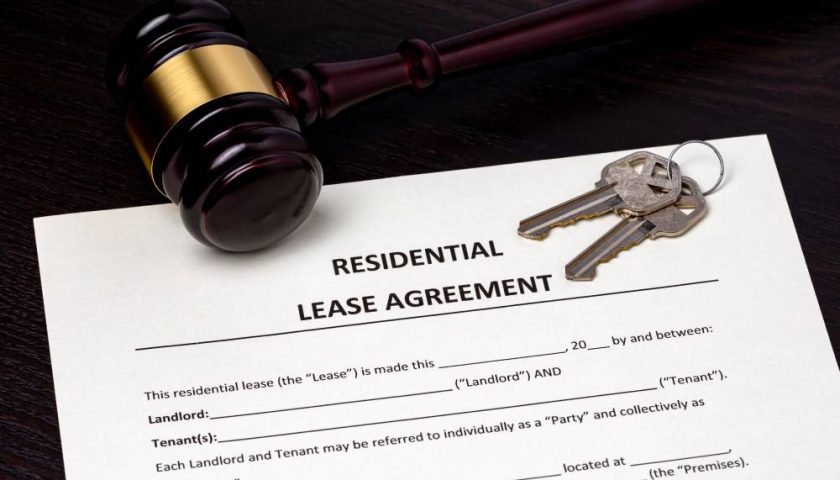Working for the Peace Corps in Bolivia several years ago, Elizabeth Gore saw how groups without capital and business skills were left in poverty.
Years later, as Gore became a successful entrepreneur and investor, she and her friend Carolyn Rhodes realized their dream, launching Hello Alice, a website to help marginalized groups in the United States start their own businesses.
“From day one, we’ve focused on helping women, people of color, veterans — groups with less credit and less access to capital — start their own microbusinesses,” Gore said.
In the year Since its launch in 2017, the site, named after the curiosity and confusion of “Alice’s Adventures in Wonderland”, has gathered 1 million users. Hello Alice offers small business owners free resources, advice and a chance to win between $5,000 and $25,000 in funding to improve their enterprises. Last year, Hello Alice awarded more than 2,100 grants totaling more than $16 million.

More than half of the site’s users are black and the majority are women, Gore says, because the NAACP has had an advisory role from the beginning.
“Our data shows that 80% of small business owners do not have a business credit score. Only 25% have applied for a business credit card and most of those have been denied,” she said.
Hello Alice, most of the income so far comes from affiliate marketing and commissions from matching users to custom mentoring, networking, educational modules and relationships with business service providers and lenders including Cabbage, Kiva, Credible and various community development financial institutions. and non-profit micro-lenders.
Now the startup is releasing its first credit card, the Hello Alice Small Business MasterCard, which Gore hopes will be a major revenue driver for the site.
Issued in partnership with First National Bank of Omaha, the Hello Alice Business Card has no annual fee. Like other small business cards, it offers 4x points for every $1 spent on business-related purchases like cell phone services and software, 3x points on office supplies and shipping purchases, 2x points on dining and ride services, and 1x on everything else.
A unique twist to the Hello Alice credit card is the way it rewards users for completing educational levels. Users can earn 150 points for creating a complete profile on Hello Alice, 100 points for logging in regularly and 100 points for competing educational modules on topics such as tax management and cash flow management.
Hello Alice Card customers receive reminders of best practices for using a credit card and building credit, including tips for users to engage with the credit bureaus to ensure timely credit card payments.
“For most of our customers, the problem with getting capital is not bad credit, but no credit,” Gore said.
Customers who don’t qualify for a regular small business credit card can apply for a secured version of the card, and are eligible to switch to an unsecured card after 11 months of hourly payments. APRs range between 15.74% and 24.74% depending on the creditworthiness of applicants. After spending $1,000 in the first three billing cycles, users will receive a $50 statement credit.
“We’ve worked hard to create a card that’s fair and has tools for financial health and business success,” Gore said.
Machine learning is a key part of Hello Alice’s growth formula.
Hello Alice states that each small business card applicant receives a credit card offer based on their fully transparent risk profile.
During the pandemic, Hello Alice retooled its platform to automate many previously manual tasks, including compliance with payment card industry data security standards and other requirements.
“We’ve put together a platform script that’s close to accommodating our growth plans,” said Kelsey Ruger, vice president of product at Hello Alice.
Offering grants to eligible Hello Alice users drives traffic to the Hello Alice website, and the company regularly partners with other companies to expand its reach.
Through October 14th, Hello Alice users can apply for a $5,000 gift sponsored by MasterCard. Massachusetts-based Stacey Pita Chips is awarding $15,000 in grants through Hello Alice to 10 female entrepreneurs in the food and beverage industries through October 21.
Starting in 2020, eBay’s annual Top and Run giveaway program, in partnership with Hello Alice, will reward 50 popular eBay online sellers with $10,000.
Several small business owners who recently won $10,000 in grants through eBay’s program told American Banker that it took them about an hour to fill out a questionnaire on the Hello Alice website. None of the contacts have applied for a Hello Alice credit card yet.
Jaster Nyasulu, a Malawian eBay seller living in Seattle, helped develop the website during the outbreak. He plans to purchase $10,000 in inventory for his eBay store, which sells fitness bands to relieve elbow, knee and ankle pain.
“Finding capital to buy equipment has always been my biggest challenge,” Nyasulu said.
Jonathan Proulx, of Alpine, Utah, said winning $10,000 allowed him and his wife to buy a home with a workshop where he can easily sort the thousands of parts and accessories he buys and list them on his eBay store. Sell that.
“I had to hire someone to help me move things, but having more space solves that problem,” Proulx said.
Another $10,000 prize winner, Adina Ringler, runs the online Adina Bridal eBay store in Northridge, California. Ringler said she will use the money to hire part-time staff during her busiest seasons.
“I’m also using Hello Alice to apply for other grants,” said Ringler, who also uses some of the site’s educational resources for business.
Houston-based Hello Alice has raised more than $22 million in venture capital funding since its inception. The company, which has 64 full-time employees, hopes to extend its $70 million grant to business owners by 2025, with a focus on the aforementioned marginalized groups and LGBTQ+ entrepreneurs and people with disabilities who run small businesses under 50.
“Our data shows that for any small business, it’s difficult to get a loan or line of credit in the first 24 months, so we want to close that gap,” Gore said.





